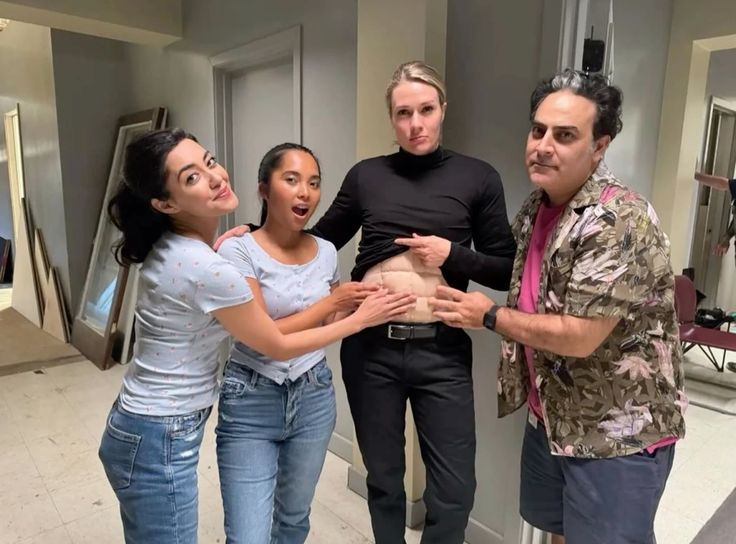
The LGBTQ+ representation in the NCIS: Hawai’i spinoff was crucial for the entire NCIS franchise because, on the whole, the franchise lacks representation. Although the cast of the flagship NCIS series has diversified over the years, it lacks a representation of a centered LGBTQ+ relationship. Kasie Hines (Diona Reasonover) had a lesbian relationship in NCIS season 19, but it was short-lived. With the cancelation of NCIS: Hawai’i and potentially a new spot opening up on the flagship MCRT now that Jessica Knight (Katrina Law) will depart the team, the series should seriously consider filling Law’s position with an LGBTQ+ character.
NCIS: Hawai’i isn’t the only time the NCIS franchise decided to include positive representation of LGBTQ+ individuals, but it’s the only time it’s been at its center. NCIS: New Orleans also featured an inclusive relationship between NCIS Special Agent Tammy Gregorio (Vanessa Ferlito) and Assistant U.S. Attorney Hannah Lee (Meghan Ory). That said, the relationship was exceptionally short-lived, with Hannah appearing only once, in NCIS: New Orleans season 3, episode 9, “Overdrive.” The relationship between Kate and Lucy was a mainstay of NCIS: Hawai’i, not just a storyline, and it was one of the elements that made NCIS: Hawai’i exceptional.
Featuring LGBTQ+ characters in a massive franchise like NCIS is a great way to bring diverse narratives to primetime television. This representation on primetime TV is important because the media helps shape perception, and positive portrayals of diversity can tell or retell stories about elements of culture that haven’t been wholly represented before. The relationship between Lucy and Kate expanded the narrative for the LGBTQ+ community of what a loving lesbian relationship actually looks like (on and off the air). The lack of this representation moving forward is a massive loss for the NCIS franchise.
When Aloha Meant Acceptance
In the sprawling universe of procedural crime dramas, NCIS has long reigned supreme. From its flagship series to spinoffs like NCIS: Los Angeles and NCIS: New Orleans, the franchise built its name on suspense, patriotism, and teamwork. But NCIS: Hawai’i brought something fresh and bold to the table — authentic LGBTQ+ representation, something the franchise had previously skirted around. So, why was this so important? Let’s dive in.
Breaking Barriers in Prime Time
The First LGBTQ+ Lead in the NCIS Universe
One of the biggest game-changers? Special Agent Jane Tennant, played by Vanessa Lachey, wasn’t just the first female lead — the show also featured a key romantic relationship between two women, Kate Whistler (Tori Anderson) and Lucy Tara (Yasmine Al-Bustami).
The Kate-Lucy romance wasn’t sidelined or tokenized. It was tender, complicated, and refreshingly real.
Moving Beyond the ‘Token Queer Character’
Let’s face it — LGBTQ+ characters in crime dramas have historically been either minor roles, background extras, or killed off early. Not in NCIS: Hawai’i. Here, LGBTQ+ characters got:
-
Complex story arcs
-
Emotional depth
-
Equal screen time
-
Respectful portrayals
This was the franchise stepping up. Big time.
Why Representation Matters — Especially Here
The Power of Visibility on Network Television
Shows like Euphoria and Pose pushed boundaries on cable and streaming platforms. But network TV? That’s a whole different battlefield. CBS is broadcast into millions of homes where LGBTQ+ conversations aren’t always welcomed.
So when a same-sex couple kisses on NCIS: Hawai’i during prime time — it’s revolutionary.
For Young Viewers, It Was Life-Changing
Representation is more than visibility. It’s a lifeline.
Imagine you’re a young LGBTQ+ teen in a small town, watching Lucy and Kate navigate love and duty on screen. You feel seen. Maybe, for the first time. That’s powerful TV.
Character Development That Felt Human
Kate and Lucy — Not Just a ‘Gay Couple’
Their relationship had real ups and downs — awkward first dates, job conflicts, emotional intimacy. Their queerness wasn’t a gimmick. It was part of who they were, but not all they were.
LGBTQ+ Characters Weren’t Defined By Trauma
Historically, queer characters are often victims. But in NCIS: Hawai’i, Lucy was a badass field agent and Kate was a driven defense intelligence officer. Their queerness wasn’t their only storyline — and that’s progress.
The Impact on the Broader NCIS Franchise
A New Standard for Inclusion
NCIS: Hawai’i set a precedent. Now, future spinoffs — and even the flagship series — can no longer ignore the call for authentic diversity.
In a way, Hawai’i held a mirror up to the franchise and said: “We can do better. And we did.”
Redefining What ‘Military Drama’ Can Look Like
Some argued that military-themed shows wouldn’t work with LGBTQ+ storylines. NCIS: Hawai’i proved them wrong. Love and identity exist in uniform too. Representation isn’t just possible in that world — it’s necessary.
The Cultural Significance of Hawai’i as a Backdrop
A Setting That Embodied Diversity
Hawai’i is a rich tapestry of cultures, ethnicities, and identities. The LGBTQ+ inclusion wasn’t forced — it felt natural in such an inclusive, multicultural setting.
The Spirit of Aloha — Love and Acceptance
Aloha isn’t just a greeting. It’s a way of life — rooted in compassion, peace, and unity. The LGBTQ+ storylines mirrored that beautifully.
Fans Reacted Loud and Proud
The #Kacy Fandom Was Born
Kate + Lucy = #Kacy. Social media exploded with fan art, edits, and tweets. The NCIS: Hawai’i fandom found community and pride in this representation.
Representation That Sparked Real Conversations
Reddit threads, YouTube reactions, blog essays — people talked. From allies to LGBTQ+ viewers, the response was overwhelmingly positive.
When fans feel seen, they show up.
Behind the Scenes — A Commitment to Authenticity
LGBTQ+ Writers and Consultants Were Involved
Unlike shows that guess their way through queer narratives, NCIS: Hawai’i brought in LGBTQ+ talent behind the scenes. The result? Characters that felt real, not written from stereotypes.
The Cast Was All In
Actors like Tori Anderson and Yasmine Al-Bustami didn’t just play a couple. They respected the weight of that representation, often engaging with fans and supporting LGBTQ+ causes.
What Other Shows Can Learn
Representation Doesn’t Have to Be Loud — Just Honest
You don’t need to scream “diversity” from the rooftops. You just need to write characters as human beings, with love, flaws, and agency. NCIS: Hawai’i nailed that.
Inclusivity Is Good Business
Let’s be real: inclusivity also pays. More audiences. More buzz. A devoted fanbase. Diversity isn’t just right — it’s smart.

The Legacy Lives On
Even After Cancellation, the Impact Remains
NCIS: Hawai’i might’ve ended, but its bold storytelling left a mark. Future writers now have a blueprint for inclusion done right.
A Franchise Forever Changed
When the next NCIS show launches, fans will expect more. Because Hawai’i raised the bar — and once the bar is raised, there’s no going back.
Conclusion — Aloha Means Never Going Backwards
NCIS: Hawai’i didn’t just tell crime stories — it told human stories. Stories where LGBTQ+ characters weren’t sidelined, stereotyped, or silenced. They were celebrated.
And that? That’s how you change a franchise.